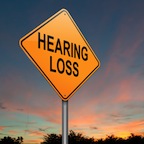Hearing loss is medical condition that can have serious consequences if left untreated. Learn why audiologists are an important first stop on the journey to improving your hearing—and why that is important to quality of life.
By Arineh Khachatoorians, Au.D.
Hearing loss is medical condition that can have serious consequences if left untreated. As audiologists, we understand how seeking help to improve your ability to hear can feel overwhelming and intimidating. In our first of two blogs, we’ll explain the role audiologists play in helping you address a hearing loss and why it is important. Our second blog will explain the different options available for treating hearing loss and why audiologists are especially qualified to help you decide which option is best for you.
Experts on hearing loss
Audiologists are hearing and balance care professionals who hold either a Doctor of Audiology (Au.D.) degree or a master’s degree and are licensed by the state board. They provide comprehensive care for the non-medical management of hearing loss, from diagnostic testing to rehabilitative services. Audiologists typically work closely with ear physicians to ensure that patients receive the best standard of care. An audiologist should take a complete history of your hearing, ear health and general health. It is also important that you have a comprehensive audiologic evaluation to determine if a hearing loss is present, and the degree to which it exists. If medical or surgical management is needed, your audiologist will refer to a physician for further work-up.
Why Should I Be Concerned About Hearing Loss?
Audiologists are experts on understanding the effects of hearing loss. Research indicates there is a direct link between hearing loss, cognition, memory, dementia, social aspects, earning power and safety.
Cognition, Dementia and Memory
The effects of hearing loss on cognition have been well-documented. Landmark Research followed 639 people ages 36 to 90 for nearly 12 years. Researchers found that for each 10 decibels of hearing loss, the risk of dementia rose about 20% compared with those with normal hearing. The risk of dementia doubled among those with mild hearing loss, tripled among those with moderate hearing loss and increased fivefold among those with severe hearing loss. It has also been found that untreated hearing loss can impair memory abilities making it difficult to learn new tasks.
Social Aspects
Untreated hearing loss has been known to cause irritability, anger, fatigue, tension, loneliness, stress and depression. Individuals with hearing loss are often embarrassed because they must ask others to repeat themselves multiple times. As a result, these people may give up trying to stay engaged in a conversation. The isolation and withdrawal from social situations can severely impact psychological health.
Earning Power
In its study "The Impact of Untreated Hearing Loss on Household Income," The Better Hearing Institute estimated that the annual cost in lost earnings due to untreated hearing loss was $122 billion, with the Federal government losing $18 billion in taxes. In a survey of more than 40,000 people using the National Family Opinion panel, hearing loss was shown to negatively impact household income on an average of up to $12,000 per year depending on the degree of hearing loss. The use of hearing devices was shown to mitigate the financial effects of hearing loss by 50%.
Safety
Hearing loss can also lead to reduced alertness, which increase the risks to personal safety. Individuals with a mild hearing loss are nearly three times more likely to have a history of falling compared to those with no hearing loss. In the U.S. National Health and Nutrition Examination Survey conducted from 2001 to 2004, researchers found that every additional 10 decibels of hearing loss meant an increase of 1.4-fold risk of falling. The researchers ruled out other factors linked with falling, such as age, sex, race, heart disease and balance. Those with hearing loss do not have good awareness of their overall environment, which makes them more likely to trip and fall.
The research clearly shows that hearing loss can have serious consequences. Left untreated, hearing loss never gets better with time—only worse. If you suspect a hearing loss in yourself or someone you love, don’t delay an evaluation. Click here for a resource on our website to decide if it’s time for a hearing test.
